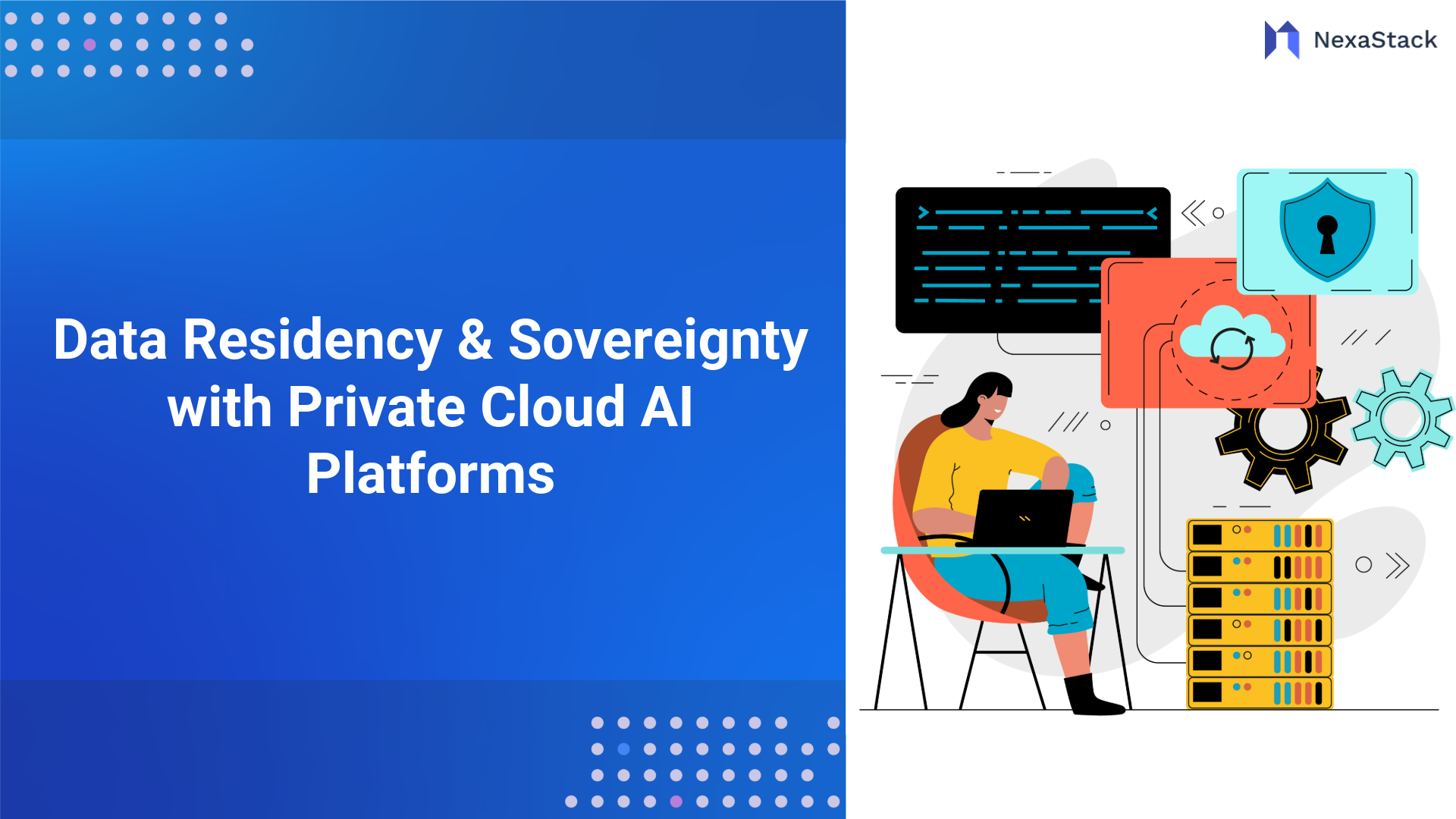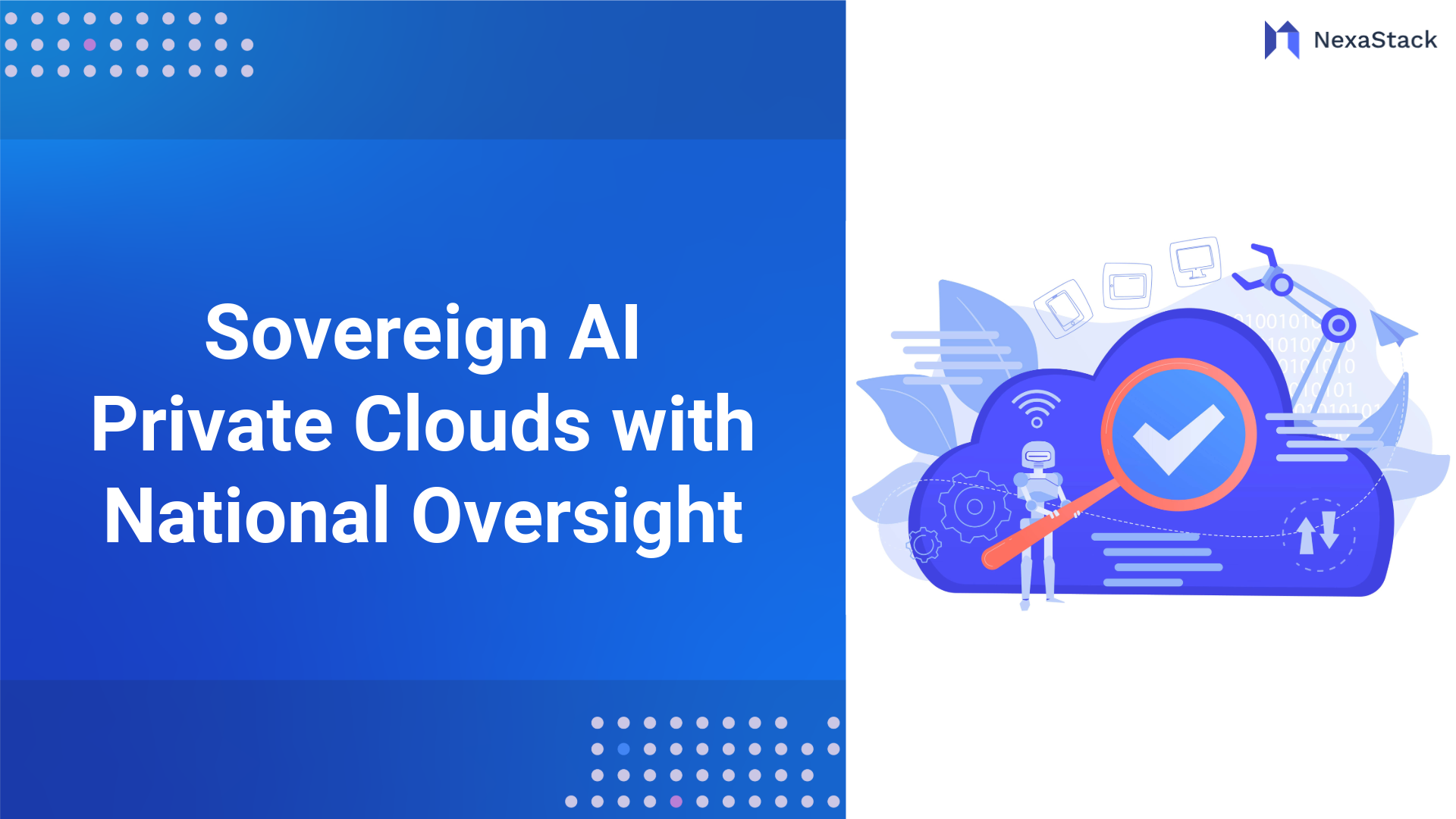The Role of Private Cloud in Enforcing Data Sovereignty
A private cloud—a computing environment dedicated to a single organisation, whether on-premise or hosted by a third party—is the most effective tool for enforcing data sovereignty.
Isolating Data Within National Boundaries
Private clouds provide unequivocal control over infrastructure. Organisations can design their AI architecture to ensure that every data byte—at rest, in transit, and during processing—never leaves a designated data centre within a chosen country's borders.
Meeting Regional Compliance Mandates
Platforms like VMware Private AI, OpenShift AI, and NVIDIA AI Enterprise on private infrastructure allow organisations to demonstrably comply with strict regional mandates by providing auditable proof of data location and control.
Reducing Risks of Cross-Border Data Transfers
By eliminating the need to send data to a public cloud provider's global regions for processing, private clouds entirely avoid the legal complexity and inherent risk of international data transfer mechanisms. 
Regulatory Drivers for Private Cloud AI Platforms
A complex web of regulations forces organisations to reconsider their AI deployment strategies.
-
GDPR, HIPAA, and Other Global Regulations: The EU's General Data Protection Regulation (GDPR) is the benchmark, enforcing strict data movement and processing rules. HIPAA in healthcare and CCPA/CPRA in California create similar stringent requirements for their sectors.
-
Industry-Specific Compliance Standards: Financial services (e.g., PCI DSS, FINRA), government contracts (e.g., FedRAMP, CMMC), and critical infrastructure all have rules that often mandate on-premise or private cloud hosting.
-
Emerging National AI Governance Policies: Countries are now introducing AI-specific laws. The EU AI Act, China's AI regulations, and evolving US policies all emphasised data governance, making sovereign control a prerequisite for AI deployment.
Architectural Principles for Data-Resident AI Platforms
Building a compliant AI platform requires intentional design.
-
On-Premise and Sovereign Cloud Models: The architecture must be built on infrastructure where the organisation (or a trusted local provider) has complete physical and logical control. Sovereign clouds offered by local providers are a popular alternative to a wholly owned on-premise data centre.
-
Policy-as-Code for Automated Compliance: Infrastructure and data governance rules (e.g., "this dataset cannot be copied to external drives") are defined in code and automatically enforced across the AI lifecycle, from data ingestion to model inference.
-
Secure Data Storage, Processing, and AI Inference: End-to-end encryption, confidential computing (which encrypts data even during processing in memory), and secure enclaves ensure data is protected throughout its entire lifecycle within the AI platform.

Benefits of Private Cloud for Data Residency & Sovereignty
-
Full Control Over Data Lifecycle: Organisations dictate precisely how data is collected, stored, used for training, and eventually retired.
-
Improved Trust with Customers and Regulators: Demonstrating sovereign control is a powerful trust signal to customers concerned about privacy and regulators demanding compliance.
-
Enhanced Security Posture for AI Workloads: An isolated private environment reduces the attack surface compared to multi-tenant public clouds, protecting valuable AI models and training data from external threats.
Integration Strategies for Private Cloud AI Platforms
A private AI cloud doesn't have to be an isolated island.
-
Connecting to Localised Data Sources: It can be integrated directly with on-premise data warehouses, ERP systems, and operational databases, minimising data movement.
-
Interfacing with Sovereign or Federated Clouds: Organisations can leverage a multi-cloud strategy using other sovereign clouds within the same legal jurisdiction for redundancy or specialised services.
-
Hybrid Models for Global Enterprises: A global company might use a central private cloud for core R&D with sensitive data while using public clouds for less regulated, global inference workloads, carefully managing the flow between them.
Best Practices for Ensuring Data Residency in AI Systems
-
Data Classification and Access Control: Tag data based on sensitivity and origin upon ingestion. Enforce strict role-based access controls (RBAC) to ensure only authorised personnel and systems can use regulated data for AI training.
-
Continuous Compliance Monitoring: Automated tools continuously scan the environment, ensuring that data remains in approved locations and that all data handling policies are followed in real time.
-
Regular Security Audits and Governance Reviews: Conduct periodic internal and third-party audits to validate compliance controls and review governance policies to keep pace with evolving regulations.
Future Outlook for Data Sovereignty in AI
The trend toward data sovereignty will only intensify, driving further innovation.
-
Rise of AI-Optimised Sovereign Clouds: Local service providers will increasingly offer cloud platforms designed explicitly with the hardware (e.g., GPUs, NPUs) and software stacks needed for high-performance AI, all within a sovereign framework.
-
Federated AI for Multi-Region Compliance: Federated learning, where the AI model is sent to the data (instead of the data to the model), will become a crucial technique for training global models without moving data across borders.
-
Global Standards for AI Data Governance: We will see a push towards international standards and certifications for AI data governance, simplifying compliance for multinational corporations. However, national laws will likely remain dominant.
Conclusion of Data Residency & Sovereignty
In the new era of AI, data is both the fuel and the liability. Navigating the complexities of data residency and sovereignty is not just a legal obligation but a competitive advantage. Private cloud AI platforms offer the most robust and controllable path to achieving this, enabling organisations to harness the full power of AI while maintaining compliance, building trust, and protecting their most valuable digital assets. The future belongs to those who innovate intelligently and responsibly.
Frequently Asked Questions (FAQs)
Learn how Private Cloud AI platforms ensure strict data residency, sovereignty, and compliance for enterprise AI workloads.
When is data sovereignty a mandatory requirement?
When regulations demand that data, models, and logs remain within national or organizational boundaries.
How does private cloud enforce data residency for AI workloads?
By keeping inference, storage, and model execution fully contained inside dedicated on-prem or sovereign VPCs.
How is model access governed in sovereign AI deployments?
Through policy-as-code controls, signed artifacts, and auditable access logs that prevent unauthorized model use.
What prevents data leakage in hybrid AI environments?
Isolated inference zones, encrypted routing, and strict cross-border restrictions ensure data never leaves trusted boundaries.
Which industries benefit most from sovereign AI platforms?
Finance, healthcare, manufacturing, government, and defense—where regulation, risk, and data control requirements are highest.





